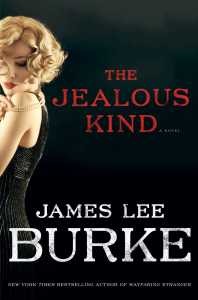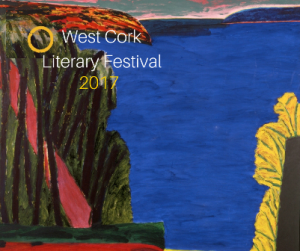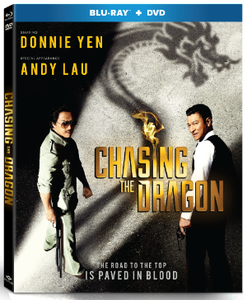 Waves “sliding over me as heavy as concrete.”
Waves “sliding over me as heavy as concrete.”
Jellyfish with “gossamer tentacles that could wrap around your neck or thighs like swarms of wet yellow jackets.”
And the beautiful Valerie Epstein’s shoulders “powdered” with sunburn.
James Lee Burke’s style is one of a kind. His metaphor-per-page rate has to be among the highest. He’s dishes them out with abandon. Prose goes down like a creamy milkshake.
The weather? The light? He’s always letting you know about the skies and the clouds and the sun and the rain.
You might get sucked into The Jealous Kind on style alone. Burke’s storytelling is matter-of-fact. He makes it look easy: “There was a time in my life when I woke every morning with fear and anxiety and did not know why.”
I’m not a Burke aficionado—not even close. I’ve read a few Robicheauxs but this is my first from the Holland Family Saga. Take that into consideration. But The Jealous Kind wields a kind of slow-burn power. It’s part coming-of-age novel and part meditation on small-town divisions, including class and religion. Cinematic? Yes. Colorful? Yes. Big sweep? Sure. Suspenseful? Somewhat.
The mood is relaxed. The narrator is Aaron Holland Broussard and he’s looking back over the decades to the early 1950’s in Houston and a moment in life when he fell in love. For starters.
Valerie Epstein is “known for her smile and her singing voice and straight A’s.” She is treated as royalty by all. Aaron pushes through every inner doubt. For Aaron, “low self-esteem was not a step down but a step up.”
So it’s a mismatch across the tracks; she’s from the north side of town. We’ve seen this set-up before, right down to the drive-in burger joint and the Cadillac convertible. In this world, stiletto means knife, not heel. Violence, Aaron comes right out and tell us, hangs in air.
But Aaron gets with Valerie and then causes a ruckus in Valerie’s neighborhood and then Aaron’s best friend begins dealing drugs and stealing cars. There are mobsters and a stolen car used to hide cash and gold. Aaron, in short, is in for a rough and challenging summer. He routinely compares his toughness to his war hero father and we can feel, too, that soon Aaron will soon be given a chance to grapple with those issues around self-esteem.
One small problem with the long-view narration is that we know Aaron lives. He must survive, of course, to recount this story. When death stops being an “abstraction” to Aaron and comes clearly into focus, we know the end result. It’s the big moment when Aaron deals with his courage and we come full circle from worrying about the sting of jellyfish to dreading the damage from a very real bullet.
Yet even before the Browning automatic gets aimed there is a “long ragged bolt of lightning.” Atmosphere like crazy wrapped around a solid story with a reflective mood. “I guess I’ve learned by now that the past can be a prison,” recounts Aaron at the end. “They remain painted on the air. They come to you in a song, a sunset on the ocean, a palm tree stiffening in the wind.”
Advertisements Share this:





